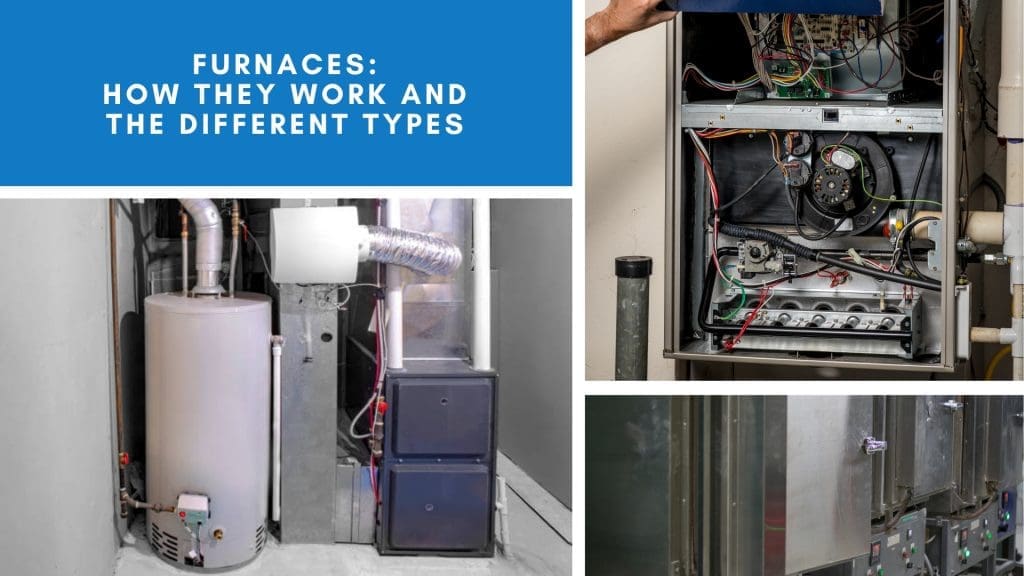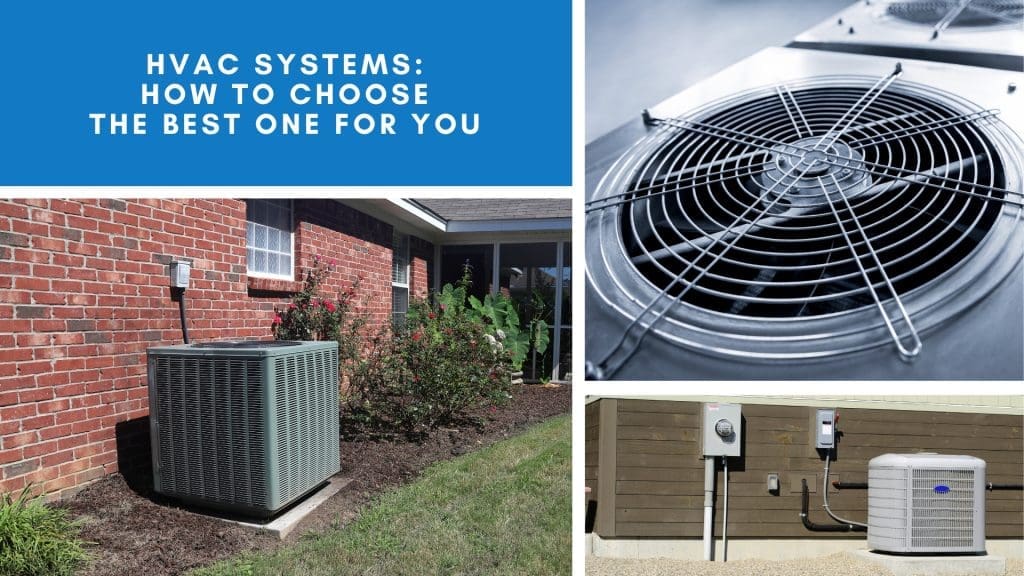Before diving into the Common Reasons for Warm Air from AC, it’s essential to have a basic understanding of how your AC unit operates. Your air conditioning system works by removing warm air from inside your home, cooling it, and then circulating the cool air back into your living space. This process involves several components, including the evaporator coil, condenser coil, refrigerant, and a fan.
Each component in your AC system plays a vital role in maintaining comfort within your home. The evaporator coil absorbs heat and humidity, while the condenser coil releases the absorbed heat outside your home. The refrigerant, a chemical compound, facilitates the cooling process by cycling between the evaporator and condenser coils. The fan aids in the distribution of cooled air throughout your living spaces. When one or more of these components are not functioning correctly, it can result in your air conditioning unit not cooling as it should.
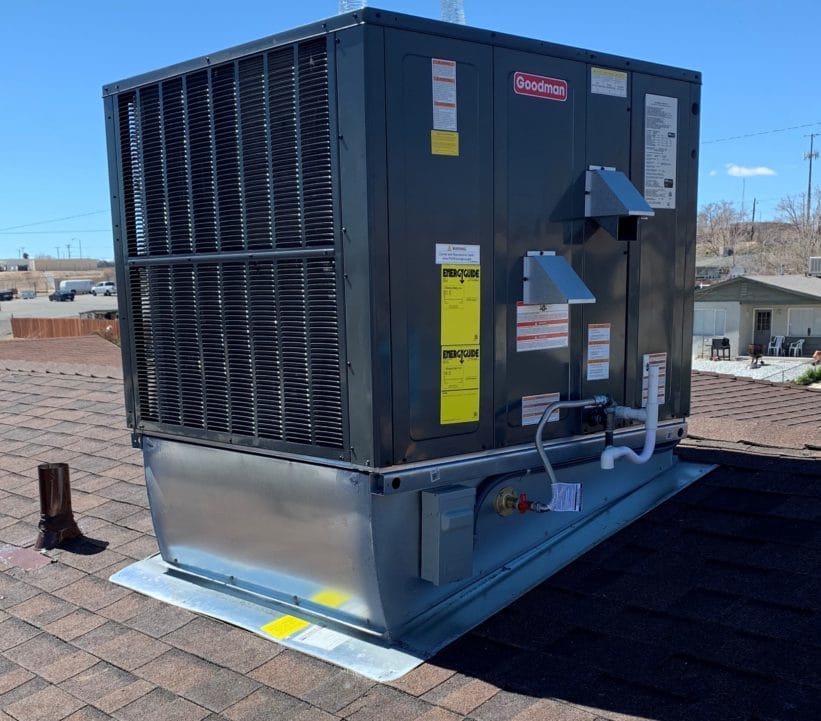
Common Reasons for AC Not Blowing Cold Air
1. Thermostat Issues
One of the simplest reasons your AC might not be blowing cold air is an issue with the thermostat. Ensure that your thermostat is set to the cooling mode and that the temperature setting is lower than the current room temperature. Sometimes, the problem might be as simple as a dead battery in a digital thermostat. Replacing the battery can often resolve the issue quickly.
Additionally, the thermostat’s location can significantly impact its performance. If it’s placed in direct sunlight or near heat-generating appliances, it may not accurately gauge the room temperature, leading to inefficient cooling. Make sure your thermostat is installed in a central location, away from any heat sources, to ensure it can accurately measure the ambient temperature and regulate your AC system effectively.
2. Dirty Air Filters
Clogged or dirty air filters can restrict airflow, making it difficult for your AC unit to cool your home efficiently. When airflow is restricted, your system has to work harder, which can lead to overheating and further complications. It’s recommended to check your air filters monthly and replace them every 1-3 months, depending on usage and filter type.
Moreover, dirty air filters can also contribute to poor indoor air quality, which can affect the health of those living in the home, especially individuals with allergies or respiratory issues. Regularly replacing air filters not only ensures efficient cooling but also maintains a healthy environment by trapping dust, pollen, and other airborne particles. Consider investing in high-efficiency particulate air (HEPA) filters for enhanced air quality and system performance.
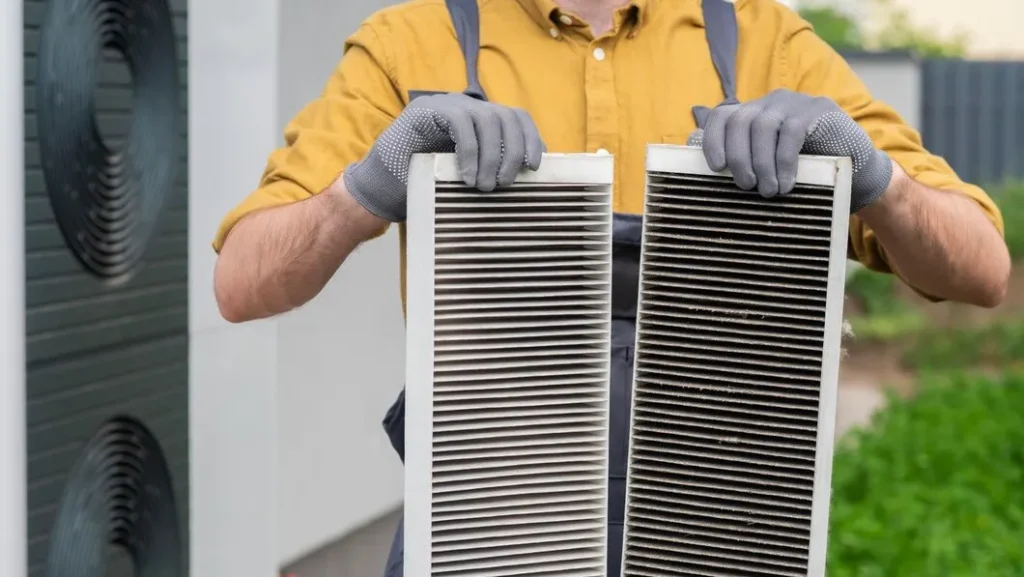
3. Refrigerant Leaks
Refrigerant is a crucial component of your AC system, as it absorbs heat from the air inside your home. If there is a refrigerant leak, your AC unit will not be able to cool the air effectively. Signs of a refrigerant leak include ice buildup on the refrigerant line, hissing sounds, or a noticeable decrease in cooling efficiency. If you suspect a refrigerant leak, it’s essential to contact a professional HVAC technician to address the issue.
Refrigerant leaks not only compromise the efficiency of your cooling system but can also pose environmental and health risks. Refrigerants are potent greenhouse gases, and their release into the atmosphere can contribute to climate change. Additionally, exposure to refrigerants can be harmful, causing symptoms such as dizziness, headache, or respiratory irritation. Promptly addressing refrigerant leaks is crucial to maintain system efficiency and safety.
4. Dirty or Blocked Condenser Coils
The condenser coils, located in the outdoor unit, release the heat absorbed from inside your home. If these coils become dirty or blocked by debris, they can’t efficiently release heat, causing your AC unit to blow warm air. Regular maintenance, including cleaning the condenser coils, can help prevent this issue.
Maintaining a clear area around your outdoor unit is also vital to ensure proper airflow and prevent debris accumulation. Trim any nearby shrubs or plants and remove leaves, grass clippings, and other obstructions that could impede the unit’s performance. Regularly inspecting and cleaning the condenser coils not only enhances cooling efficiency but also prolongs the lifespan of your AC system by reducing strain on its components.
5. Electrical Issues
Faulty wiring or electrical components can prevent your AC unit from functioning correctly. If you’re experiencing intermittent cooling or your unit isn’t working at all, electrical issues might be to blame. It’s crucial to have a qualified HVAC professional inspect and repair any electrical problems to ensure safety and efficiency.
Ignoring electrical issues can lead to more severe problems, including system failure or even fire hazards. Regular inspections by a professional can help identify and rectify potential electrical faults before they escalate. Additionally, ensuring your AC unit is connected to a dedicated circuit can prevent overloads and improve the overall reliability of your cooling system.
6. Frozen Evaporator Coils
The evaporator coils are responsible for absorbing heat from the air inside your home. If these coils freeze, they can’t absorb heat effectively, leading to warm air being circulated. A common cause of frozen evaporator coils is restricted airflow, often due to dirty air filters or blocked vents. Addressing these issues can help prevent the coils from freezing.
In some cases, frozen evaporator coils can also result from low refrigerant levels or thermostat malfunctions. It’s essential to address these underlying issues to prevent recurring problems. Regularly monitoring your system for signs of freezing, such as frost on the coils or reduced airflow, can help you catch and resolve issues before they lead to more significant damage.
7. Leaky Ductwork
Leaky ductwork can cause cool air to escape before it reaches your living space, resulting in inefficient cooling. Inspect your ductwork for visible leaks or tears and seal them with duct tape or mastic sealant. In some cases, hiring a professional to inspect and repair your ductwork may be necessary.
Leaky ducts not only reduce cooling efficiency but also increase energy consumption, leading to higher utility bills. Ensuring your ductwork is properly sealed and insulated can improve your AC system’s performance and reduce energy waste. Additionally, regular inspections can help identify areas that may require professional attention, ensuring your system operates at peak efficiency.
8. Aging AC Unit
If your air conditioning unit is more than 10-15 years old, it might be time to consider a replacement. Older units are less efficient and more prone to issues that can lead to warm air being blown. Upgrading to a newer, more energy-efficient model can improve your home’s comfort and lower your energy bills.
Investing in a modern AC unit can provide numerous benefits, including enhanced cooling performance, reduced noise levels, and advanced features such as programmable thermostats or smart home integration. While the initial cost of replacement may be significant, the long-term savings on energy bills and maintenance can make it a worthwhile investment. Consulting with an HVAC professional can help you choose the right system for your needs and budget.
When to Call a Professional
While some issues, such as replacing air filters or checking the thermostat, can be addressed by homeowners, other problems require the expertise of a professional HVAC technician. If you’ve tried troubleshooting common issues and your AC unit is still not blowing cold air, it’s time to call in a professional. They can diagnose and repair more complex problems, ensuring your system is running efficiently and safely.
Professional technicians have the tools and expertise to handle intricate repairs and maintenance tasks that are beyond the scope of DIY solutions. They can identify hidden issues, such as refrigerant leaks or electrical faults, that may not be immediately apparent to homeowners. Regular professional maintenance not only ensures optimal system performance but also extends the lifespan of your AC unit, providing peace of mind and comfort for years to come.
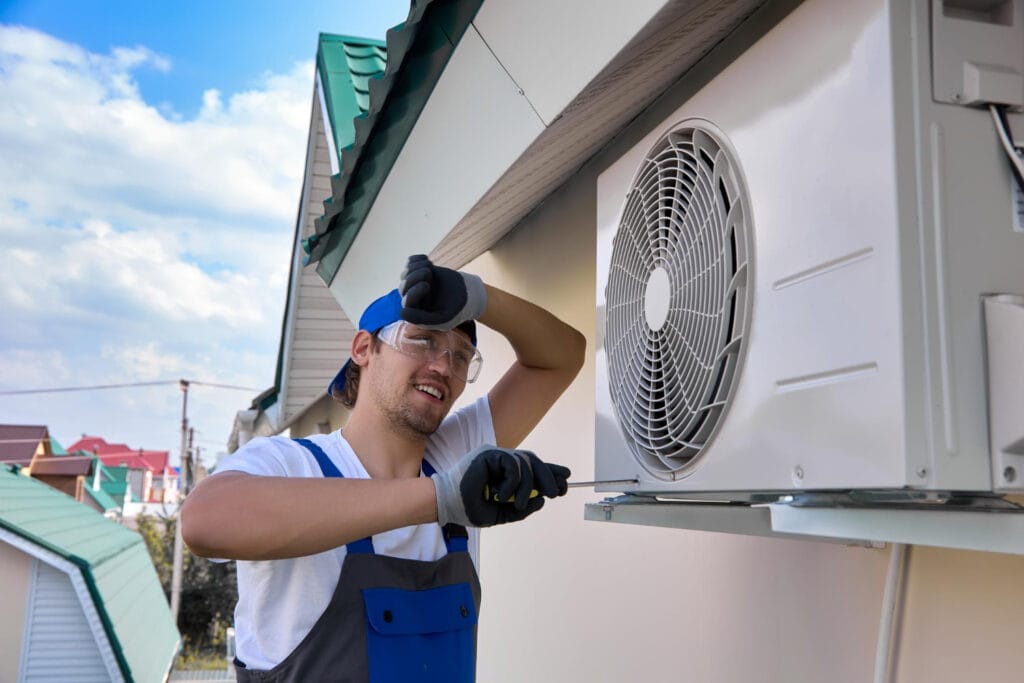
Preventative Maintenance Tips
Regular maintenance is key to keeping your AC unit functioning optimally. Here are some tips to help prevent issues that could lead to your AC blowing warm air:
- Schedule Annual Tune-Ups: Have a professional HVAC technician inspect and service your air conditioning system annually to catch and address potential problems early. Annual tune-ups can help identify wear and tear on components and ensure that your system is running at peak efficiency before the onset of the hot season.
- Replace Air Filters Regularly: As mentioned earlier, regularly replacing air filters can improve airflow and prevent issues that could lead to warm air being blown. Keeping a supply of filters on hand can make this task simple and routine, ensuring you never miss a replacement.
- Keep the Outdoor Unit Clean: Ensure that the area around your outdoor unit is free of debris and vegetation to maintain proper airflow and efficiency. Regularly inspect the unit for dirt buildup and clean the coils as needed to prevent blockages that could impair performance.
- Seal and Insulate Ductwork: Properly sealed and insulated ductwork can prevent cool air from escaping and improve your system’s efficiency. Consider hiring a professional to assess and enhance your ductwork, especially if you suspect leaks or inefficiencies.
- Install a Programmable Thermostat: A programmable thermostat can help you maintain consistent temperatures and improve your system’s efficiency by automatically adjusting the temperature when you’re away or asleep. This feature not only enhances comfort but also reduces energy consumption and costs.
Conclusion: Common Reasons for Warm Air from AC
Experiencing warm air from your AC unit can be frustrating, but understanding the common reasons behind this issue can help you address it effectively. By performing regular maintenance and seeking professional assistance when necessary, you can ensure your air conditioning system remains efficient and reliable throughout the year. If you’re in the Los Angeles area and need assistance with your HVAC system, feel free to reach out to us at LC Heating and Air Conditioning. We’re here to help keep your home comfortable and cool.
Taking proactive measures to maintain your AC system not only ensures your comfort during the hottest months but also prolongs the lifespan of your unit, enhancing its overall value. Our team at LC Heating and Air Conditioning is committed to providing top-notch service and solutions tailored to meet your specific needs. For more information or to schedule a service, visit our website at lahvaclc.com or give us a call at (818) 858-7080. Your comfort is our priority!

